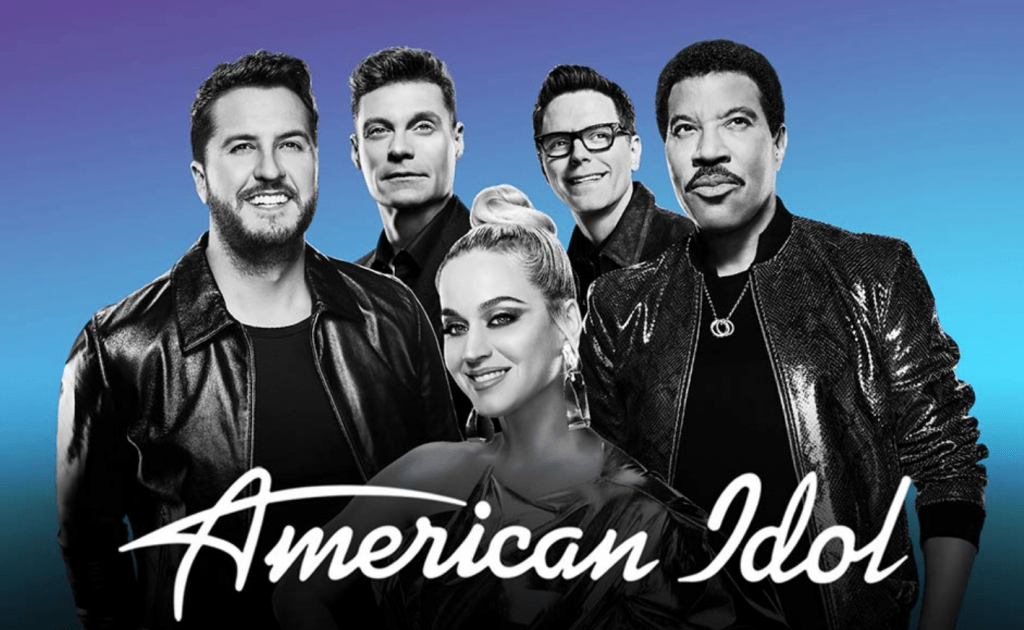As The Crown’s most recent season premiere draws to a close, freshly elected prime minister John Major (Jonny Lee Miller) summarizes the situation. He bemoans “the junior royals are irresponsible, entitled, and lost; the senior royals seem dangerously delusional and out of touch.” What’s worse is that it seems like everything is poised to blow up.
Major believes that these impressions are bad news for both the monarchy and the country beginning a new decade. They serve more as a tease to the audience. The Crown’s previous season hit its highest point to date, garnering praise from the critics and a shower of prizes when it was released in late 2020.
Such a surge in praise for a drama so late in its run was unprecedented in a crowded field. However, Season 4 was always going to be interesting given creator Peter Morgan’s road map, a six-stop tour of British history that moves through Queen Elizabeth II’s reign decade by decade.
The 1980s sowed the seeds of royal unrest with the entrance of Margaret Thatcher (Gillian Anderson) and Diana Spencer (Emma Corrin), both unlikely figureheads of antiestablishment ire. To Major’s worry and our joy, we finally saw them bear fruit in the 1990s.
Also, Look At The News
- Dior Transforms Harrods Into A Massive, Festive Gingerbread House
- Nick Cannon Will Soon Have His 12th Child
At least, that was the expectation. The Crown was ready to tuck into the juiciest red meat going into Season 5: the bitter, tabloid-fueled divorce of Prince Charles and Princess Diana. However, there were other grounds to temper our giddy enthusiasm for a split House of Windsor.
The debut of The Crown would take place in a drastically different setting for a character study of the queen, who passed away in September, in addition to covering up the bite scars that a prosthetic-clad Anderson left on the surrounding environment. Her passing at the age of 96 was not unexpected, but Morgan had little time to respond in a season that was almost over.
new emergency discussion from the people who brought you “is hacks bad actually” https://t.co/B0rPdqeKpd
— Kathryn VanArendonk (@kvanaren) November 10, 2022
It still hangs over the episodes, which debut Imelda Staunton as an elderly Elizabeth who is far past middle age—the representation of her that even seasoned royal tradition watchers are most familiar with. The Achilles’ heel of this season might be familiarity. The 1990s may be the most overexposed the monarchy has ever been.
Earlier seasons of The Crown emphasized the less well-known aspects of Elizabeth’s reign, such as her mother-in-law starting a convent and her son learning Welsh. Even the most recent upheavals, such as Prince Harry’s explosive Oprah interview and upcoming memoir, pale in comparison to the controversy surrounding his mother, which was exacerbated by the tragedy of her fatal car accident and endlessly rehashed in works like Spencer, The Diana Chronicles, and Diana: The Musical, to name a few.
(Even Morgan himself is returning to well-known territory: His Oscar-winning play The Queen, which explored Elizabeth’s mental turmoil when Diana died, provided a foreshadowing of his potential sympathies.) Even The Crown’s highly praised MO turns out to be more of a disadvantage than a strength when compared to so many earlier works.
Down with #TheCrown. The once majestic series has turned into a parody of itself. My #review for @Mint_Lounge: https://t.co/4y5uDQRxlJ pic.twitter.com/WlnLHSlcKC
— Raja Sen (@RajaSen) November 11, 2022
The concert abruptly shifts from exhilarating excitement to subdued politeness at the wrong time, and Major’s anticipated eruption turns into sombre restraint. Casting is where it all begins. The Crown switches out actors every two seasons to allow its characters to age and develop, much like Skins, a different program about generational changes in the British national character.
(Consider how the “it girl” played by Vanessa Kirby transfers the torch to the washed-up divorcee played by Helena Bonham Carter, both of whom serve as vital representations of Princess Margaret.) Josh O’Connor, who played the younger Prince Charles, was the perfect combination of sincere and resentful.
He was mesmerized by Emerald Fennell’s Camilla Parker-Bowles and coerced into a bad match with Corrin’s Diana, who was then a shy and gentle kid who was ten years his senior. Dominic West, a ruggedly attractive heartthrob who excels at playing charming rogues, has been cast in The Crown’s adaptation of Charles as an older man. He instantly contrasts with the stuffy future monarch.
Hollywood enjoys a good makeover, but West’s presence goes above and beyond simple flattery. Charles’s essence is being aggressively overwritten, which is even more clear given how well-known it is now. This man thinks that phone sex should entail a carton of Tampax!
I popped up on your actual radio dial to talk about what’s going on with THE CROWN. https://t.co/Gfir97dIep
— Linda Holmes thisislindaholmes.com (@lindaholmes) November 8, 2022
There is a ton of TV available. We’ll let you know every week which shows are the greatest and most important to stream so you can remain on top of Peak TV’s always-growing pile. On the other hand, Elizabeth Debicki’s portrayal of Diana begins to take on an ungenerous tone.
The Crown chooses to highlight largely positive characteristics of Charles: his sincere and steadfast love for Camilla; his charitable work, which is the subject of an entire episode; and his purported interest in modernizing the monarchy, a dubious read on a man who now formally rules over former colonies like Jamaica.
The Crown does the reverse with Diana, or at least with the mature version of her who is acclimated to international fame. One of the main reasons for her ongoing appeal is her support for topics like AIDS and HIV care, which is hardly ever spoken up about.
The perception that Diana is conceited, spiteful, and hopelessly depressed is not wholly unjustified, but it is also unbalanced by the positive traits she possesses, just as Charles’ perception is skewed oppositely. The hatchet job contradicts the collective, living memories of viewers, just like Charles’ glow-up did.
The tragedy of Charles and Diana is that both are guilty and at fault, pitifully good-intentioned, and abominably greedy. (This is what distinguishes journalist Tina Brown’s coverage of the royal family as outstanding; she is equally cautious of sanitizing defects and removing human quirks.) Indeed, Charles has traditionally received less sympathy than the princess of the people, and he may merit more praise for his qualities.
However, by acting so outwardly on his side, The Crown abandons its responsibility to tell a compelling tale and begins to serve as a de facto publicist. The duty-obsessed Elizabeth would probably not be supportive. Tony Blair (Bertie Carvel), the new prime minister, visits Charles in Hong Kong and compliments him in private for being “an excellent man” rather than being turned off by the prince’s overt self-interest.
If The Crown were a little more impartial, perhaps its argument would be stronger. The Crown loses a crucial source of contention on its political side while interpersonal conflict intensifies. Despite being Thatcher’s ideological ally, Major has the exact opposite disposition.
The obvious similarities between Thatcher and Elizabeth—two female world leaders who were born only a few months apart—brought out their pronounced differences, turning their meetings into more of a brawl. The seeming contrast between Major and Elizabeth—a South Londoner from the working class and a born aristocrat—does not reflect their true similarities.
A dispatch from the @washingtonpost‘s all-star London correspondents on the latest season of The Crown and its impact on the UK. “It matters for the future of the monarchy, and its ability to project soft power in the world, if Charles is viewed as a jerk.”https://t.co/saLn1bec4P
— Annabelle Timsit (@BelleTimsit) November 9, 2022
The queen describes her most recent prime minister as a “calm, frank, steady presence,” a list of qualities she holds in high regard. The resulting companionship may be a solace for a monarch under attack, but it’s not nearly as entertaining to watch as Anderson sparring with Olivia Colman, two actors who are both at the height of their abilities.
Watching a stodgy institution be pushed to become more accessible to the outside world provided much of Season 4’s thrills. Season 5 continues this campaign in its greatest form. The father of Diana’s prospective love interest, Egyptian businessman Mohamed Al-Fayed (Salim Daw), is the subject of an uncomfortably timed episode; by the conclusion of the season, Diana and Dodi aren’t even together.
Although Mou Mou (his nickname) tries in vain to acquire the prestige the Windsors were born with, the hour still hits on subjects like the difficulties of assimilation, adding an outsider’s perspective to the show’s exclusive environment. A far more important question than the result of a single divorce is raised by Martin Bashir’s improper interview with Diana: what role should the BBC play in a world of shifting media?
However, Season 5 is primarily a closing of the ranks. The royal family stands behind its members when Diana transforms from a potential ally to an open foe, just as the royal family takes a defensive stance when its characters are under the most pressure in The Crown.
The season’s core parallel connects the monarch with her soon-to-be-retired royal boat, and Elizabeth remarks that “even the televisions are a metaphor in this place” as her analog set receives an update to satellite service.
The Crown appears content to go down with this specific ship as it enters its last season. The meme’s message, which reads “Reject modernity, embrace tradition,” exemplifies at least one way that this small-c conservative show stays up with the times.




